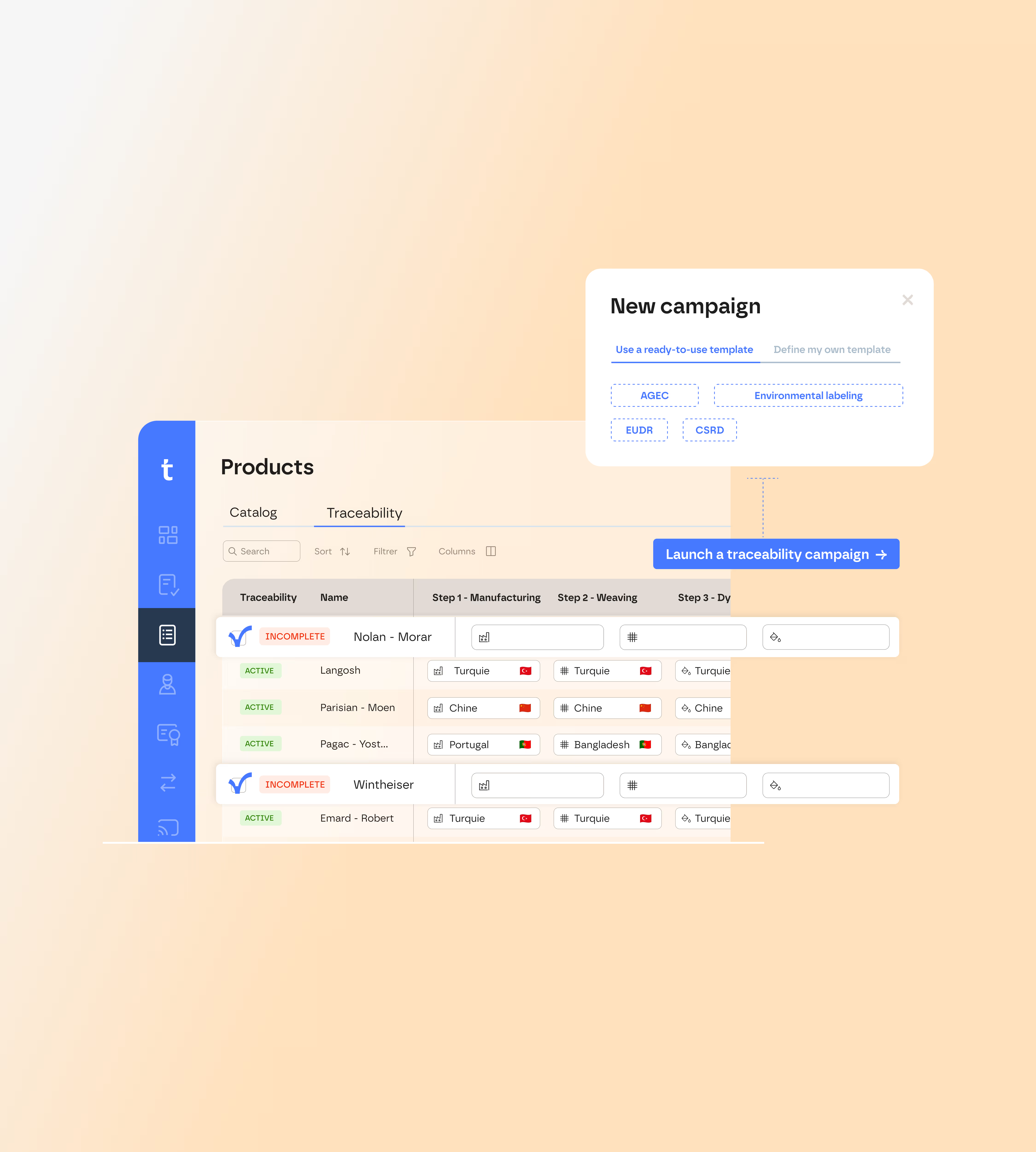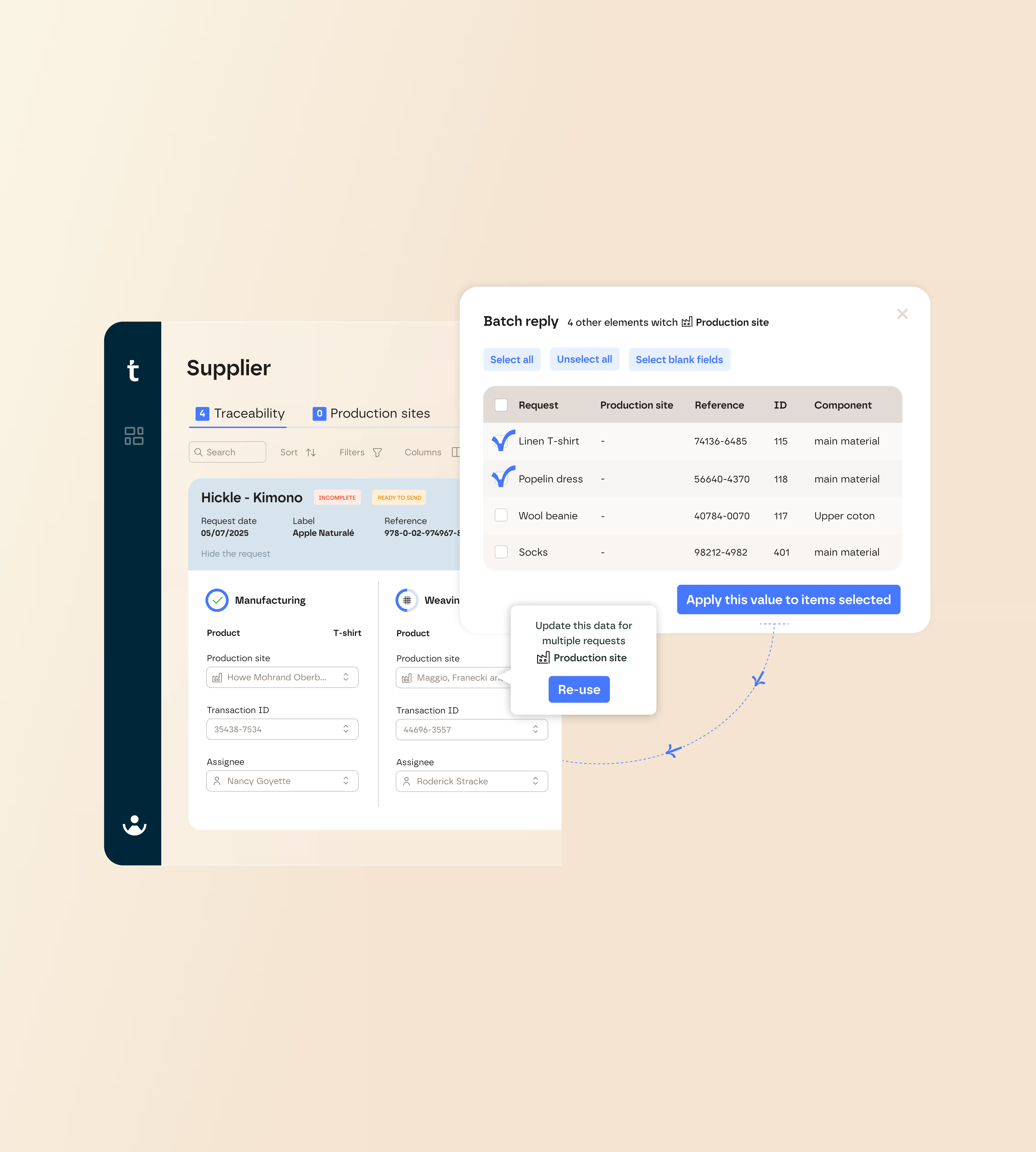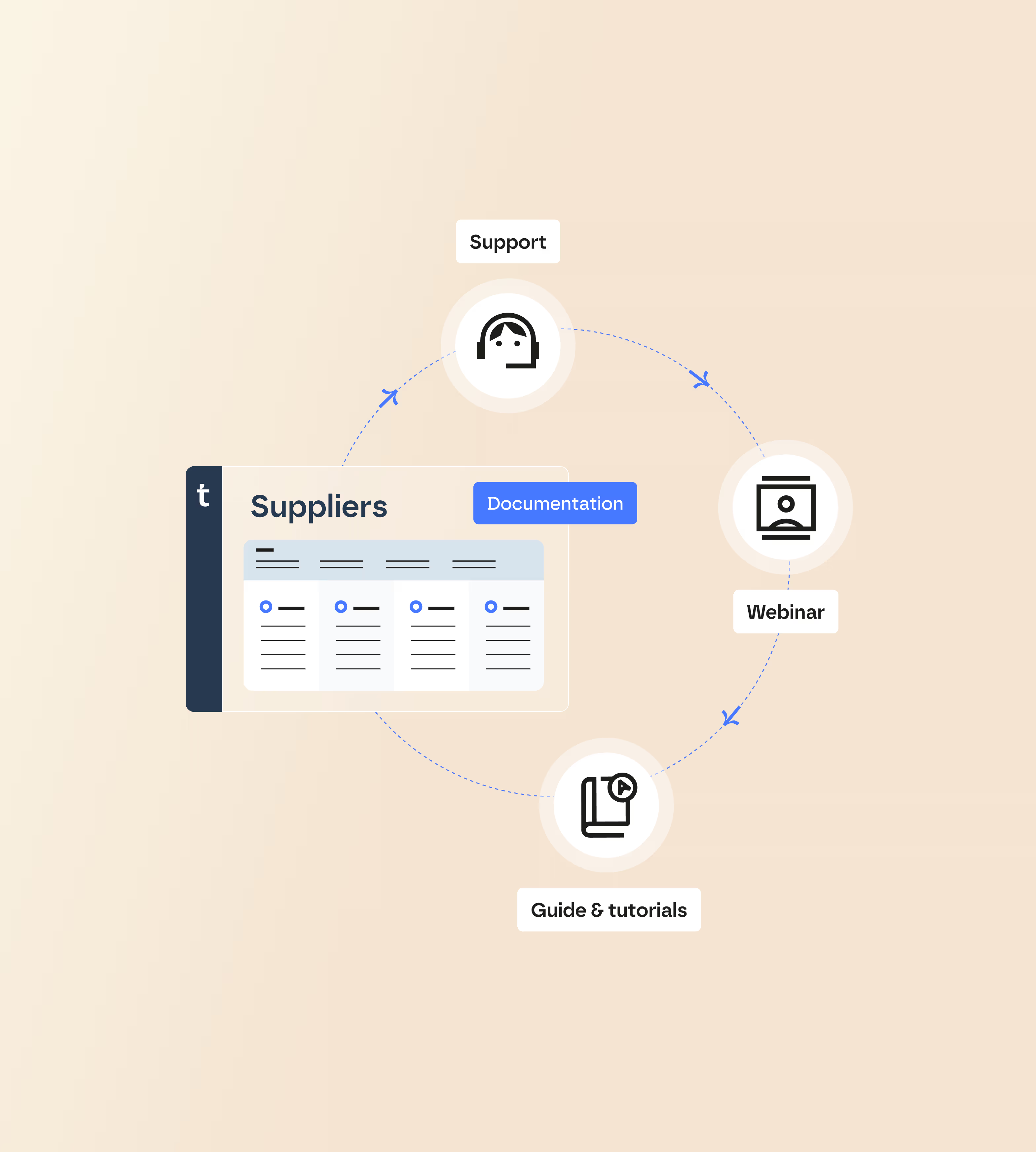Pimkie
Automating large-scale traceability and accelerating AGEC compliance
Pimkie, a brand combining agility, commitment, and innovation



Automating large-scale traceability and accelerating AGEC compliance
A French fashion brand committed to responsible transformation
Pimkie, a leading French fashion brand for women aged 18 to 25, continues to reinvent itself to align with the expectations of a new generation of conscious consumers.
Through its “Pimkie Positive” program, the brand actively works to reduce its environmental footprint, increase transparency, and strengthen the traceability of its collections.
In partnership with Trace For Good, Pimkie has automated the collection of over 30 customized data points per purchase order, making traceability and AGEC compliance faster and more reliable than ever.
Context and ambition
Before working with Trace For Good, Pimkie managed traceability through manual Excel files, a method unsuited to the brand’s pace and production volume.
These challenges were amplified by Pimkie’s hybrid production model (finished products and made-to-order), its high number of suppliers, and fast replenishment cycles (up to every three weeks) generating over 3,000 traceability requests per collection.
Objectives of Pimkie
Industrialize its AGEC compliance to meet growing transparency and traceability regulations
Collect and centralize complex data from a large supplier base across multiple countries
Feed Clear Fashion’s fashion score with verified environmental and social data for each product

The benefits of Trace for Good
A modular solution that adapts to the brand's use and evolves with its needs
Structured onboarding and training sessions to accelerate adoption in Europe and Asia
An intuitive interface, making it easier for both in-house teams and suppliers to use
Full automation of traceability and compliance, eliminating manual excel tracking
Implementation and results
A Tailored Solution for Large-Scale Traceability
Trace For Good’s platform was configured to address Pimkie’s unique needs:
- Automated ingestion via SFTP from Kubix, sending traceability requests and reminders directly to suppliers.
- Advanced data centralization, managing documents, certifications, and transaction certificates (TCs).
- Adaptation to hybrid production, allowing supplier onboarding before traceability requests for made-to-order items.
This approach allowed Pimkie to collect over 30 personalized data points per PO, including social, environmental, and production-site information, all transmitted to Clear Fashion to calculate verified Fashion Scores for over 1,200 product references.
Collaboration and Supplier Engagement
Pimkie’s project success relies on strong collaboration between Trace For Good, the brand’s CSR department, and its buying offices, which act as intermediaries with manufacturers. Their in-depth knowledge of local suppliers, especially in Asia, has been a key asset in engaging partners and ensuring smooth data collection.
To facilitate adoption, onboarding sessions were organized in Europe and China, providing training and alignment around a shared vision of traceability.
The result: suppliers now complete traceability requests within 14 days, ensuring fast and efficient data turnaround.
Résultats de la solution
Solution results
3000
+
Purchase Orders traced per collection
30
+
customized data points collected and transmitted to Clear Fashion
14
days average completion time for supplier requests
100
%
involvement of buying offices in the initiative
Key success factors
End-to-end automation, ensuring reliable and fast data processing
Co-development of the project between Pimkie and Trace For Good teams, tailored to business needs
Structured onboarding of buying offices and suppliers, accelerating adoption of the solution
The favourite features of Pimkie
Fill out the form below.















%20(2).png)






